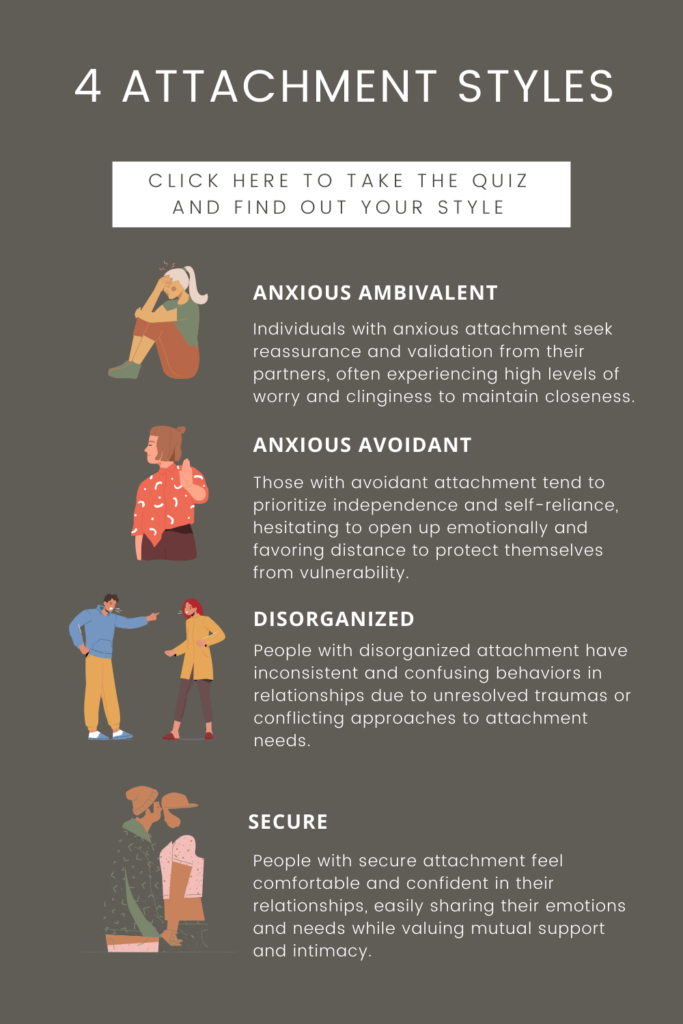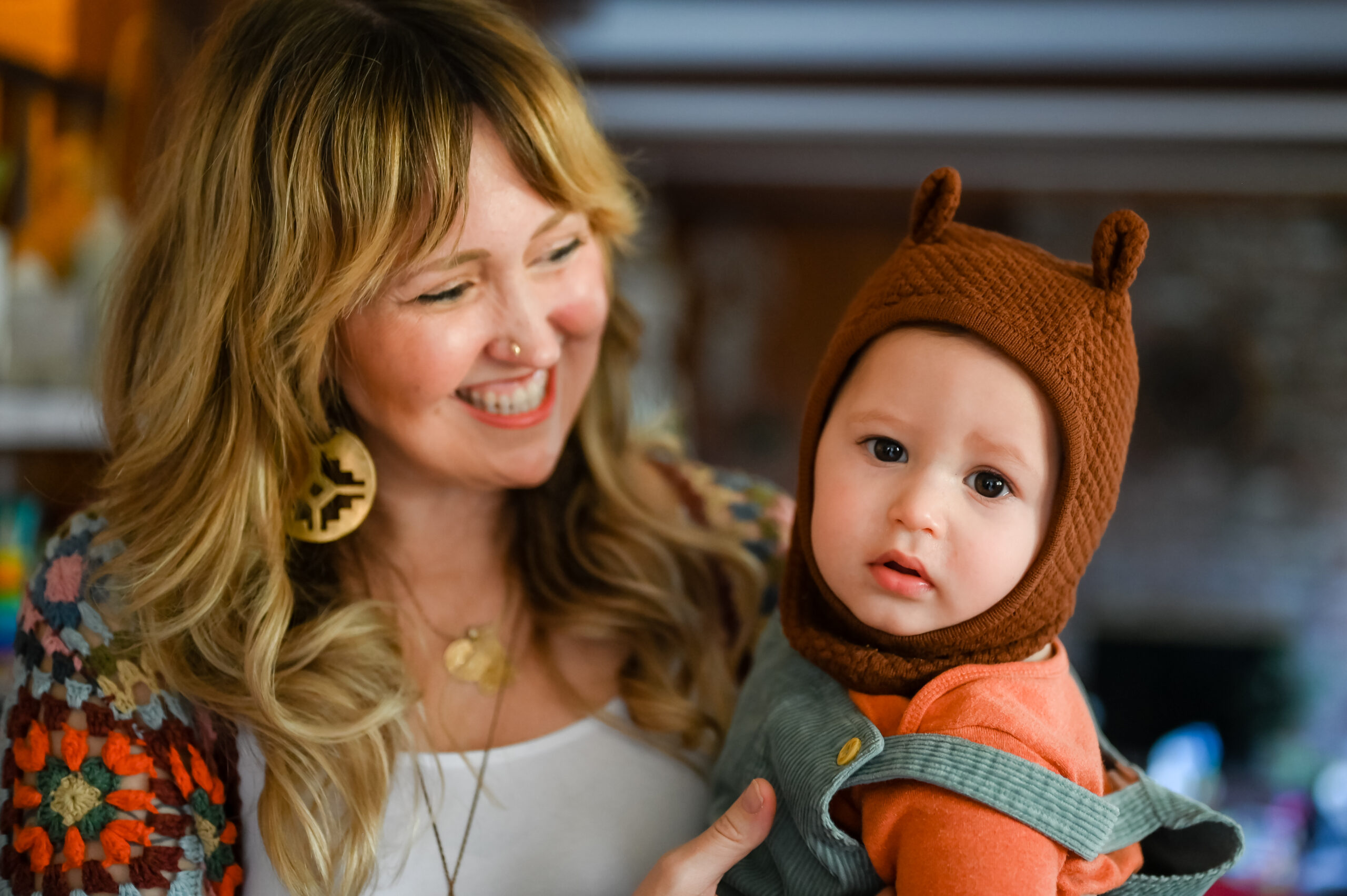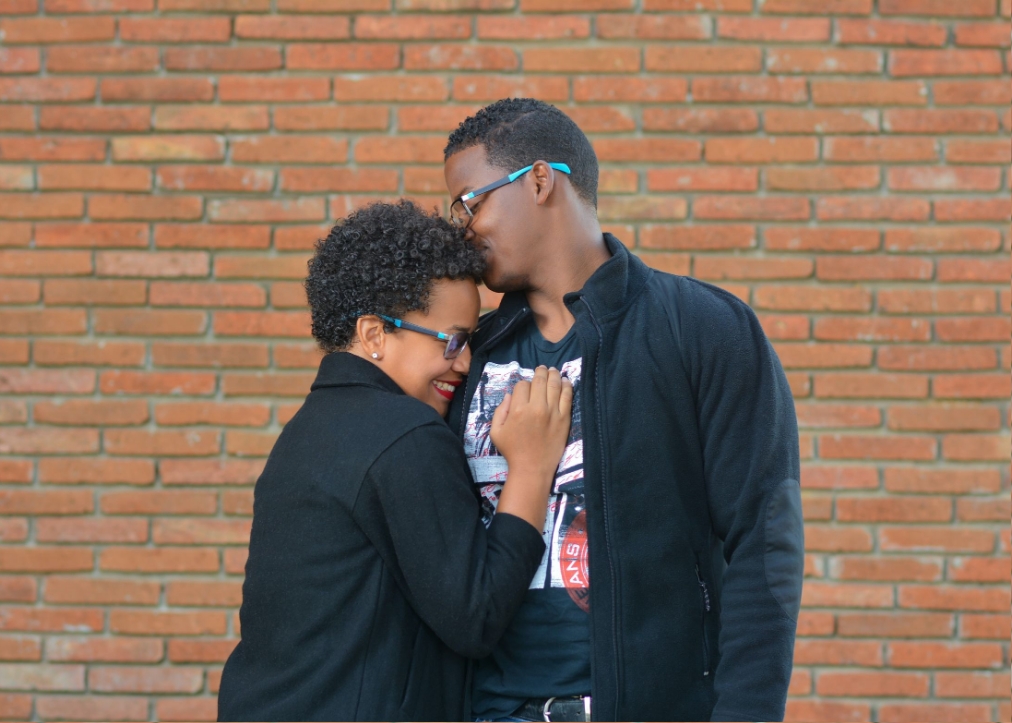Are You Anxiously Attached? Here’s How to Find Out
Imagine this scenario:
You’re in a disagreement with your partner and things are getting heated. In the middle of the fight, your partner says, “Fine, I’m leaving to get some space! I can’t deal with you right now.”
How do you feel?
If you answered shaky, nervous, abandoned, panicky, or inconsolable, you might be anxiously attached.

Now, to be fair, if a partner up and leaves in a conflict it could be THEIR attachment style that is in the mix here (cough, cough *err, can we say avoidant attachment?*), but often times, both are in the mix. But for the moment, let’s talk more about anxious attachment.
First, a Short Intro on Attachment Theory
Attachment Theory is an influential psychological model that explains the different ways humans connect with each other in their social lives. Developed by John Bowlby in the 1950s, Attachment Theory suggests that our early experiences with our caregivers shape our ability to form secure relationships later in life.
According to Attachment Theory, there are four attachment styles, one of which is called Anxious Ambivalent attachment, but is often abbreviated to just “Anxious Attachment”.
Attachment styles are the framework of how we relate to being close to and dependent on someone. Usually, we learn how to attach to our loved ones from our primary caregivers when we were children.
Our attachment style is also related to how we regulate our nervous system when we are in relationship, which is a fancy way of how we manage stress and our emotions when we are upset.
Attachment styles can also change throughout our lives, depending on our adult relationships and how secure they are.
Causes of Anxious Attachment:
Today we’re going to focus on one style, Anxious Attachment. In PACT we call this style Waves. Caregivers who are inconsistent with their affection and availability tend to raise children who are anxious about their attachment.
As a child, you had no way of determining whether you would find a loving, affectionate parent or a disinterested, cold parent from day-to-day, even minute-to-minute. You desired the safety of knowing that you’d be cared for consistently, but that safety never came and it left you feeling confused, clingy, and alone.
Sometimes it is hard to know if this happened in your childhood because generally your parents took care of you. It’s just that their care was inconsistent. They might have been really busy, or they might have had a “take care of yourself” kind of attitude.
It also sometimes happens that we get into relationships that are distant and difficult with a withdrawn partner, and those adult relationships can make us more anxiously attached.
Symptoms of Anxious Attachment:
Heightened need for closeness:
People with anxious attachment style often feel a heightened need for closeness and security in relationships. They also tend to lean toward or pull on their partner if they are stressed or feeling upset.
Fear of Abandonment:
They may also fear abandonment and feel insecure in their relationships, worrying that their partner may reject or abandon them.
Those with anxious attachment style may have difficulty trusting others and may become overly dependent on their partners. Although those two things can seem opposite of each other, (not trusting and being dependent), the expectation that you will be dropped or dissapointed is actually the thing that has you cling more in relationship.
Cling More Because of Fear:
Clinging more, then has folks pull away from you more which can lead to more dissapointment. You can end up feeling overwhelmed by relationships, fearing of conflict, and have a difficulty in expressing emotions.
It is important to note that having an anxious attachment style does not necessarily mean that one’s relationships are doomed to fail. With the right support and understanding, people with anxious attachment style can learn to navigate their relationships in a healthier way. A mental health professional can help to provide the necessary guidance and support to help those with anxious attachment style gain confidence and trust in their relationships.
Signs Of Anxious Attachment in Adult Relationships, Self Assessment:
The anxious attachment style, in essence, resembles that friend who texts “Are we still friends?” right after you hang out.
As an anxiously attached adult, you still feel the anxiety of never knowing whether your relationships are secure, and the pain of being rejected by your parent. You still feel clingy and desperate for love, seeking in your romantic partner the consistent love that you never received — a “rescuer” who will “complete” you.
Ask yourself these questions, and see if they describe some of your previous or current relationships:
1) Do you fear abandonment?
When you fall in love and start to depend on someone deeply, do you get clingy and need a ton of reassurance that you won’t be abandoned and rejected, even when your partner is assuring you it won’t?
That’s likely because the inconsistency of your caregiver’s attachment made you vigilant for any sign that you’re going to be dropped, so you’re constantly thinking you might be rejected again.
Fear of abandonment might happen during major events, like when your partner leaves on a business trip or takes space during a fight, or it can happen during small events, like your partner goes to work, or even just to the store. Anxious attachers will go to great lengths to get their loved one to stay with them: anger, begging, pleading, even blocking the door or breaking down in sobbing tears. Often, the pain of being abandoned is out of proportion to the event that is taking place.
Anxious attachers usually have difficulty with separations and reunifications — you might even start a fight when you are reunited with your partner after a long absence because the stress of the anxiety made you feel so resentful.
2) Are you self-critical and insecure?
If anything goes awry, like your partner leaves the house or can’t assuage your feelings the way that you need, do you tend to blame yourself first, just like when you were a child?
Because your child-self didn’t understand why your parent was aloof and cold, you most likely began to think that you did something wrong to cause the inconsistency. Anxious attachers are often insecure and self-critical, giving great weight to their partner’s opinions and relying on their partner’s approval and reassurance to help regulate their anxiety.
3) Are you the pursuer in the relationship?
Are you always the one to make the first phone call or text? Do you get panicky if the other person doesn’t reply right away so you text again, or call three or four times in a row? Do you find yourself apologizing first, even if it wasn’t your fault?
Pursuer behavior is a byproduct of anxious attachers’ fear of abandonment, and a preemptive way of avoiding rejection. Anxious attachers are preoccupied with the state of their relationship, and will do almost anything to get back to a relative feeling of security. However, sometimes this behavior backfires, as the pursuer may escalate to crossing boundaries, extreme insecurity, and pushing which, ultimately, pushes the other person away.
Dating with an Anxious Attachment Style:
Navigating the dating world with an anxious attachment style can be like trying to surf on stormy seas. Here’s what it looks like:
Intense Jealousy: You may become jealous or possessive in early stages of dating. Your mind plays tricks on you, making you believe your date might slip away.
Becoming Too Clingy: Anxious daters can sometimes become overly dependent, wanting to spend every moment with their date. It’s like diving headfirst into a new relationship and drowning it with intensity.
Difficulty Setting Boundaries: Establishing personal boundaries can be a challenge. You might go along with whatever your date wants, even if it’s not what you truly desire.
How to Fix Anxious Attachment and Become Securely Attached:
What can you do about it?
Anxious attachment can be painful and difficult to manage, but there are ways that you can help yourself, and ways your partner can help you that will make your relationship run much more smoothly.
Firstly, definitely check out my article on the 5 things you can do to become more secure when you are anxiously attached. There are therapies that are more effective for attachment healing, and you definitely want to know which was to choose. Talk therapy can be great for calming stress when you are anxiously attached, but you can also spend a lot of time talking and not shifting the actual issues. I highly recommend EMDR with a practitioner that does attachment focused EMDR. EMDR is one of the fastest therapy modalities I’ve found, speeding up what can take years into just weeks.
The other thing to consider is that your healing dramatically improves when you are doing psycho education along with your individual work. I have found that my clients who do my coaching program along with 1:1 work make tremendous leaps in their growth compared to clients who just do therapy or coaching.
If you are dating, and you want to find more secure partners (one of the fastest ways to become secure is to date someone secure) then you should check out my dating secure starter pack.
There are also loads of other resources on my (you guessed it) Resource Page. If you’re still not sure about your attachment style, I recommend you take this short test to find out more.







